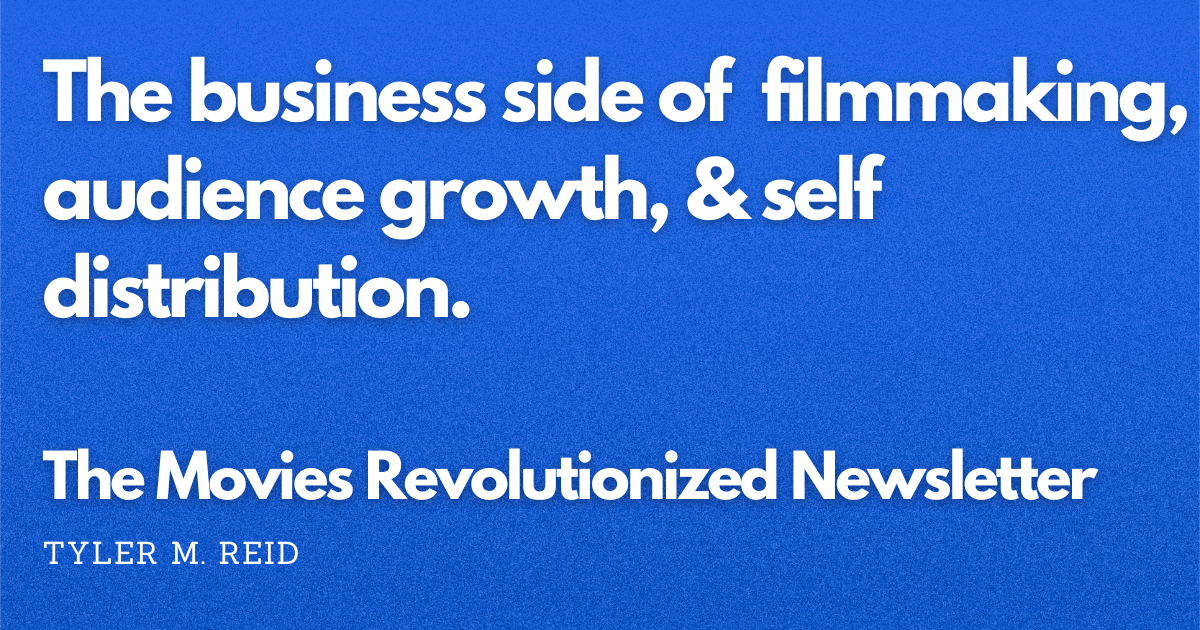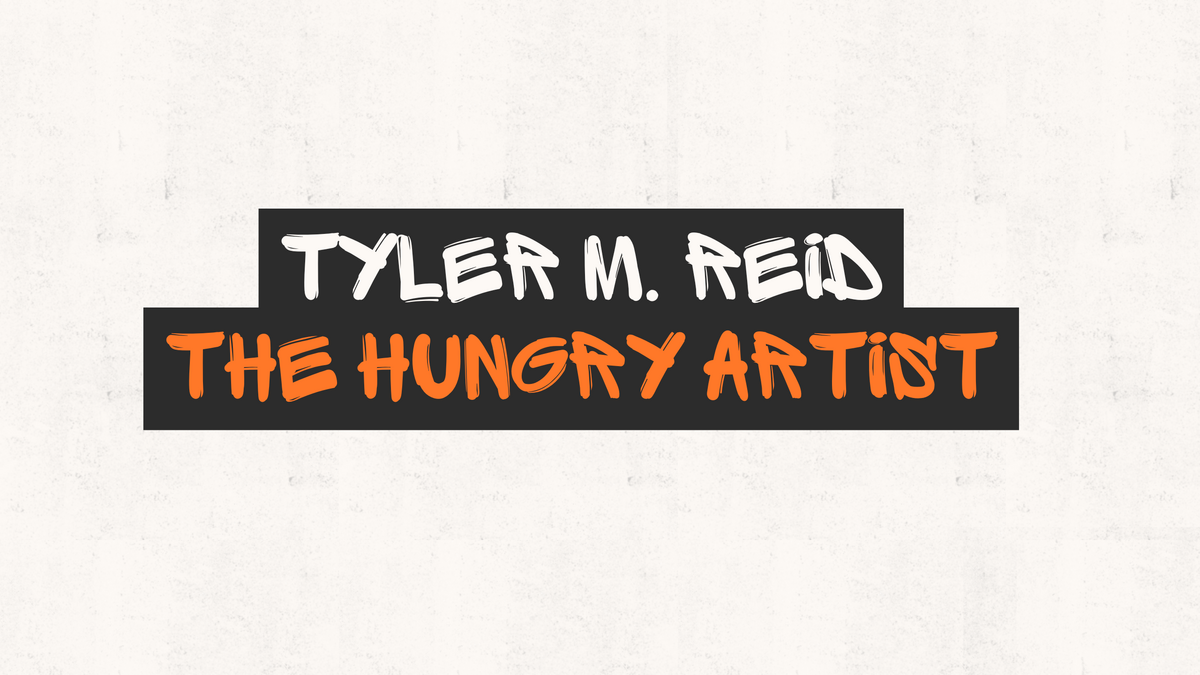Giving Up is the Fastest Route to Failure
You only hear about people when they have succeeded, usually you don’t get to know how long it took them to get there unless you dig deep and read about them. The older you get the further away success feels, even though it’s likely it’s much closer than you think. When we are young we are naive and believe the first piece of content we make, be it a short film, or commercial, or music video, or even your first feature film will set you up for a life of filmmaking success. As time goes on and that great success doesn’t come, it can start to feel disheartening and as if success will never come…that’s when you begin to question your choices.
Is it worth it to keep going or should you just give up on your dream as a filmmaker and find a safe job?
Of course there are no guarantees here, but as long as you keep going, you will find success. There are a couple important things to consider though that will help this happen.
How can I keep making films as a filmmaker if I can’t get my films made?
Lateness to greatness
Let’s take a quick look at some filmmakers that started later in their lives.
Ridley Scott
Breakthrough: Alien (1979)
Age: 40
Scott’s transition from commercials to feature films came with Alien, which catapulted him into prominence.
Ava DuVernay
Breakthrough: Middle of Nowhere (2012)
Age: 40
After working in PR and directing smaller films, DuVernay gained recognition at 40 for Middle of Nowhere.
Roger Avary
Breakthrough: Co-writing Pulp Fiction (1994)
Age: 35
Avary’s collaboration with Quentin Tarantino on Pulp Fiction earned them an Oscar and set Avary’s career in motion.
Lee Daniels
Breakthrough: Precious (2009)
Age: 50
Daniels worked as a producer before directing Precious at 50, earning multiple Oscar nominations.
Ang Lee
Breakthrough: Sense and Sensibility (1995)
Age: 41
After years of struggle, Ang Lee found international fame with Sense and Sensibility, marking his career breakthrough.
David O. Russell
Breakthrough: Three Kings (1999)
Age: 41
Three Kings was Russell’s commercial breakthrough at 41, setting him on a path to further success.
Terry Gilliam
Breakthrough: Brazil (1985)
Age: 45
Gilliam made his name as a director with Brazil, after his earlier work with Monty Python.
George Miller
Breakthrough: Mad Max (1979)
Age: 40
After studying medicine, Miller created Mad Max at 40, launching a successful career as a filmmaker.
Nancy Meyers
Breakthrough: Private Benjamin (1980)
Age: 40
Meyers co-wrote Private Benjamin at 40, leading to a long and successful career in Hollywood.
John Cassavetes
Breakthrough: Faces (1968)
Age: 40
Cassavetes, considered one of the pioneers of independent cinema, made his breakthrough as a filmmaker with Faces at 40, after a career in acting.
While you are waiting for your big break, there are small swings you can take
There are things you can do as a filmmaker to practice at your craft as well as get recognition for your work that can help lead you to the specific career you want.
What can a screenwriter do?
You can take several proactive steps to practice your craft and share your work, even while trying to break into the industry. Just like directors can create spec ads or small films, you have options to showcase you skills and get noticed. Here are some ideas:
Write Short Films and Collaborate with Filmmakers
Short films are a great way to get your scripts produced and seen. Many filmmakers, especially those starting out, are looking for short scripts to practice their directing or cinematography skills. You can:
Post scripts on online communities (like Reddit’s r/Screenwriting, or forums like Stage 32) to connect with directors.
Reach out to local film schools or indie directors to offer your scripts for their projects.
Write and Share Spec Scripts
Spec scripts can be used as writing samples. You can:
Write a feature or TV pilot and submit to screenwriting competitions like the Nicholl Fellowship, Austin Film Festival, or The Black List.
Post your spec script on your personal website to showcase your style to potential collaborators.
Collaborate with YouTube Creators
Many YouTube channels, particularly those focused on short films, comedy sketches, or web series, are always looking for writers. You could:
Pitch original short film or sketch ideas to creators who already have an audience.
Offer to write for YouTube channels that need fresh content.
Write for Audio Dramas or Podcasts
The rise of audio dramas and scripted podcasts has opened new doors for screenwriters. Audio formats can be less expensive to produce than films, and many successful podcasts are gaining recognition from film studios. Consider:
Writing a pilot script for a podcast and finding collaborators to produce it.
Submitting your work to podcast networks that produce scripted shows or look for content submissions.
Create or Contribute to an Anthology
If producing your own film or audio drama seems daunting, you can write a short for an anthology project. Many filmmakers collaborate on anthologies as a way to pool resources and talent.
Publish Your Screenplays Online
You can publish short screenplays on platforms like Medium or your personal blog. This lets you showcase your work, and potential collaborators or industry professionals can read them. (make sure to register your screenplay to the copyright office first in whatever country you live in)
You could even serialize a feature-length script on Substack or another newsletter platform, building a readership over time.
Adapt Your Script into a Short Story or Graphic Novel
You can adapt your script ideas into other mediums like short stories or graphic novels, which can reach new audiences. This is especially useful for speculative fiction, horror, or sci-fi, where stories are often expanded into other media before hitting the screen and in this way you are creating various elements for your IP.
Offer Script Doctoring or Editing Services
Consider offering script doctoring or editing services for aspiring filmmakers who might need help developing their scripts. This can help you network with local directors, give you practice refining scripts, and open up collaborative opportunities.
What can a director do?
Let’s look at directing now.
Make Spec Ads
Create spec commercials for well-known brands or local companies, even if they haven’t asked for one. These spec ads can be shot with a small crew and minimal budget(or just you and your phone), giving you something to showcase to potential clients or ad agencies. Share them on online.
Work with Local Artists on Music Videos
Collaborate with local musicians or indie bands to create music videos. Many musicians are open to creative partnerships, especially when they lack budget but need visual content. Use the flexibility of music video formats to experiment with your directing style and tell compelling stories. You can then submit these videos to music video festivals or share them online.
Reach Out to Small Businesses for Ads
Offer to create low-budget promotional videos or ads for local businesses, restaurants, or startups. This allows you to practice working with clients and understand how to balance creative vision with business needs. These projects can also be a great way to build a local network of business owners who might refer you to others(or even be a potential sponsor or investor when you make a feature film). Approach them by showcasing some of your previous work or a spec ad you've already done.
Film a Scene from Your Script
Select a single scene from a feature or short script you’ve written, and film it on a micro-budget to demonstrate your directorial skills. Focus on key elements like actor direction, cinematography, and emotion, even if the production values are modest. Use this to showcase how you handle dialogue, pacing, and tension. Share the clip online or at short scene festivals to gauge feedback.
Direct for Local Theater or Student Productions
Try directing small theater productions or collaborating with film students at local universities. Theater direction can improve your ability to work with actors, while helping student filmmakers on their projects provides a chance to hone your craft and network with up-and-coming talent. These connections might lead to future film projects or more expansive collaborations.
Collaborate on Anthologies
Join forces with other filmmakers to produce an anthology film, where each director contributes a segment to a larger project. This allows you to take on a manageable portion of a film while sharing the production load. Anthologies are often screened at festivals and provide an opportunity to get your work seen without the cost and commitment of a full feature.
Practice being prolific
Practicing and creating are the only true ways to move your career forward. I understand luck is involved, and networks, and connections, and a lot of other variables play into all of it too. BUT without content luck will never happen, without content to show your network or connections it’s very unlikely they will recommend you to someone else. No matter what, a body of work is what allows you to get to the work you really want to do.
Focus on taking small swings, the more you do that, the more likely you are to hit your big break.
There are two ways I can help you.
I give away a free bundle with example pitches, templates, and interactive budgets that you can grab right here.
If you are on your journey to make your first short film, documentary, or even micro budget feature, this course is designed to help you find money, grow your audience, and earn an income.


